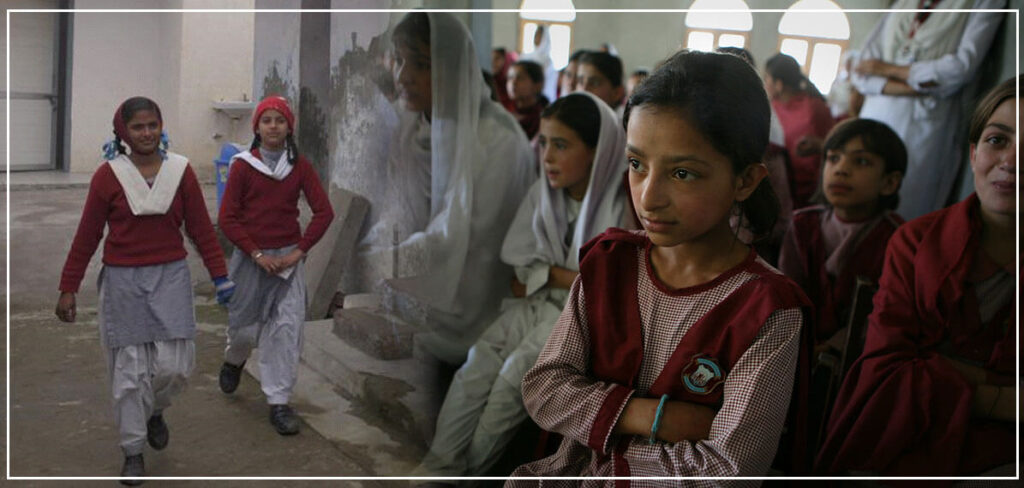For girls’ and women’s health, dignity, and general wellbeing, menstrual hygiene is essential. Alot of health problems, including infections, rashes, and other long-term repercussions, can result from poor menstrual hygiene practices. For the overall wellbeing and empowerment of young pupils, maintaining good cleanliness and fostering menstruation awareness in schools are essential. Girls may experience shame, discomfort, and absence from school as a result of inadequate facilities, education, and open dialogues regarding menstruation. In order to eliminate the stigma associated with menstruation in educational institutions, this blog addresses the significance of improving hygiene standards and fostering a friendly environment.
The World Health Organization (WHO) found that there weren’t enough handwashing stations in schools around the world in a 2019 survey. This proportion increased to 70% when the least developed nations were taken into account. Furthermore, girls’ self-esteem and confidence may be impacted by the stigma &
shame associated with menstruation.
The Significance of Menstruation Education
Although it is a normal and necessary physical function experienced by women, menstruation is frequently shrouded in myths and taboos. Due to a lack of understanding about menstrual health issues and good cleanliness measures, many schoolgirls experience difficulties during their periods. By dispelling stereotypes and eradicating stigma, education about menstruation can benefit both boys and girls. By offering thorough menstrual education, schools can aid in lowering knowledge barriers. education on subjects like the menstrual cycle, good hygiene habits, and menstrual product choices. This can aid girls in developing a better understanding of their bodies and encourage improved hygiene habits, such as the use of sanitary pads in India, which can lower the risk of infections and other health issues.
Accessible Menstruation Products
The accessibility of menstrual hygiene products in schools is essential for improving hygiene and fostering a welcoming environment for students who are on their period. To ensure that financial limitations do not interfere with students’ education or wellbeing, schools should make sanitary napkins and menstrual cups readily available and free to all students. Additionally, to ensure hygiene and dignity during menstruation, efficient disposal systems and clean restrooms are crucial.
Safe and Private Facilities
For students who are menstruating, schools must prioritize providing secure and private locations. Girls frequently experience humiliation or discomfort as a result of subpar toilet facilities. A welcoming environment for all students can be created by designing gender-inclusive and spotless restrooms. Additionally, schools ought to have a structure in place to help girls who are experiencing menstruation discomfort or other issues so they can rest and heal without feeling shame.
Menstruation Awareness Programs
Menstrual awareness campaigns can end the taboo and encourage students to accept their bodies without feeling ashamed. Schools may invite doctors, therapists, and specialists in menstrual health to lead programs and discussions. These discussions ought to cover menstrual hygiene, dispel myths, and promote candid discussion. Creating a supportive network for girls to share experiences and ask for assistance when necessary can also be accomplished by encouraging peer-to-peer interactions.
Involving Parents and Guardians
The message of acceptance and support must be emphasized at home, hence it is crucial to involve parents and guardians in menstruation awareness campaigns. Schools might host workshops for parents that address their worries and give them knowledge to support their girls throughout their periods. Schools can develop a comprehensive approach to menstruation hygiene and awareness by incorporating the entire community.
Summary
To empower young students and reduce the stigma associated with menstruation, schools must improve hygiene and menstruation education. Educational institutions can provide a welcoming atmosphere by integrating thorough instruction, offering easily accessible menstruation products, and building secure, private spaces. Giving girls the knowledge and assistance they need during their periods would not only enhance their general well-being but also help create a society that is more egalitarian and forward-thinking. Together, let’s make schools a place where menstruation is acknowledged, celebrated, and accepted with honor.

